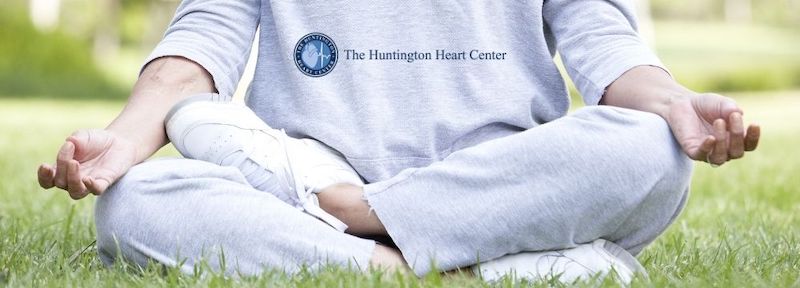Meditation, Mindfulness and Your Heart Health

With heart disease as the leading killer of adults, both male and female, in the United States, we must be aware of its consequences and develop ways to prevent it. Of course, improved diet and exercise as well as proper screening is critically important to improving both overall health and the function of your heart. And while our jobs and lives may require it, stress has truly gotten out of control. Indeed, our bodies are naturally programmed to experience stress, just not at the sustained levels that we do today.
Stress is at the core of a very important fight or flight reaction. Prior to the modern comforts that we enjoy, humans needed to escape threats on a regular basis. The fight or flight stress response allowed hormones and chemicals to be released into the body that increased our focus and power to escape the potential harm. Today, that response permeates large swaths of our lives, whether it is at work or at home, due to stress.
Ultimately, it is not experiencing stress that is the problem. It is how we react to it. Stress is quite normal and can be managed in several ways, not least of which is meditation and mindfulness. Meditation trains you in deep breathing and muscle relaxing exercises to melt stress and return our minds to a more balanced state. Mindfulness forces us to take a minute to understand a bit more about ourselves, those around us and the situations we are in.
When used in conjunction with other heart healthy habits, meditation and mindfulness can rebalance stress hormones and do wonders for our heart’s long-term health.
What if I don’t have time?
With our lives as busy as they are, it may feel impossible to break away for a bit of meditation and mindfulness. However, it may be easier than you think.
Mindfulness comes in many forms. For one, you can use your lunch break to improve your mindfulness. Take an extra minute to enjoy your food – thinking about the different flavors that you are experiencing and focusing on the ingredients. Try to avoid fast food and if eating out, opt for a restaurant that offers fresh foods with bursts of taste. Enjoy your surroundings. If you can eat outside, look up at the sky, the view from your seat and even watch people as they walk by. It’s fascinating what you will notice when you take a moment to reflect, relax and observe.
Meditation can often be even easier to make time for. It simply requires a few minutes of quiet, and earbuds. If you are having a particularly difficult or stressful day at work, you may be able to break away for as little as two minutes and listen to a guided meditation that can be found on any number of apps or even on YouTube. Calming your inner voice, with some guidance can do wonders. When you get home later, you may want to build on that by participating in a longer meditation of 10 or even 20 minutes.
If you have difficulty falling asleep, meditation may also be very beneficial and there are specific meditation tracks that promote restfulness and relaxation. Better sleep, of course, leads to less stress.
The bottom line
While we may believe that we have no time for meditation and mindfulness, even the smallest steps can make a big difference. Try to set aside just a few minutes each day to take stock in your life and to melt away the stress with meditation and mindfulness. Remember that what we do today can profoundly affect our heart health in the future.







